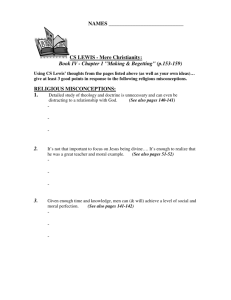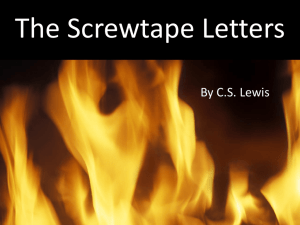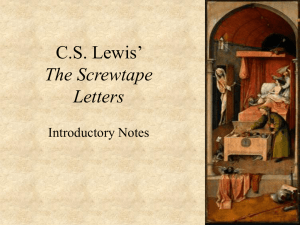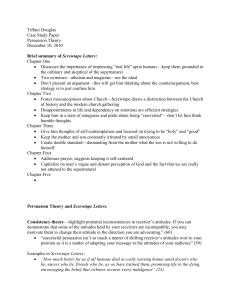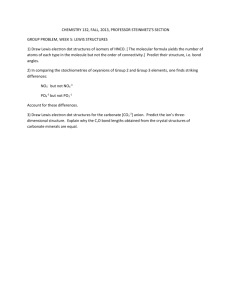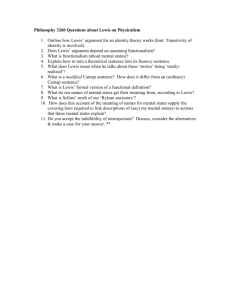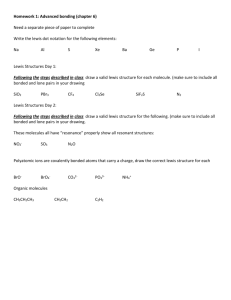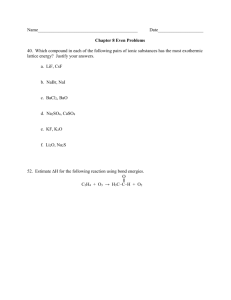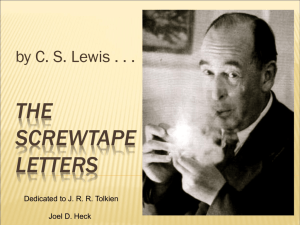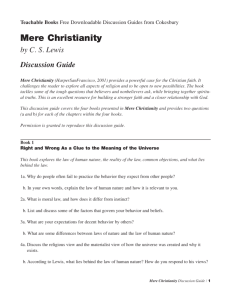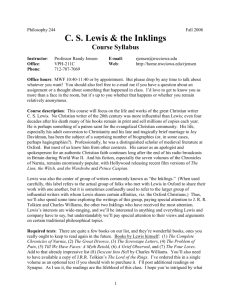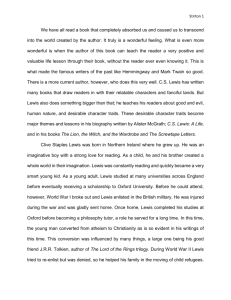Small Group Reflection November 14, 2013
advertisement
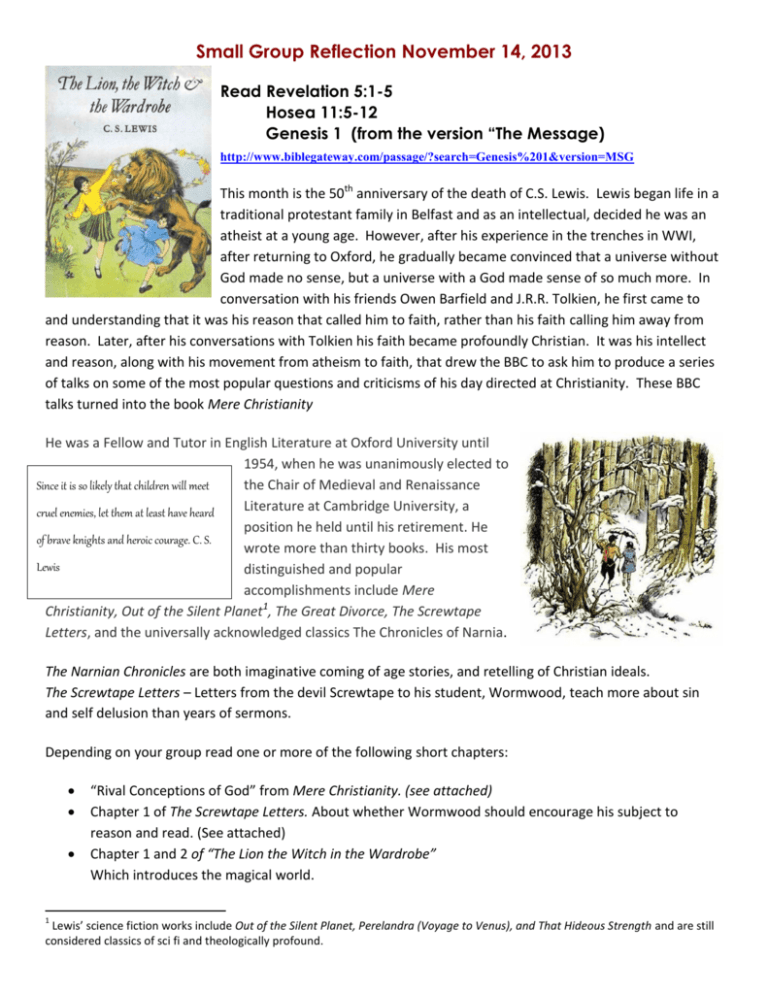
Small Group Reflection November 14, 2013 Read Revelation 5:1-5 Hosea 11:5-12 Genesis 1 (from the version “The Message) http://www.biblegateway.com/passage/?search=Genesis%201&version=MSG This month is the 50th anniversary of the death of C.S. Lewis. Lewis began life in a traditional protestant family in Belfast and as an intellectual, decided he was an atheist at a young age. However, after his experience in the trenches in WWI, after returning to Oxford, he gradually became convinced that a universe without God made no sense, but a universe with a God made sense of so much more. In conversation with his friends Owen Barfield and J.R.R. Tolkien, he first came to and understanding that it was his reason that called him to faith, rather than his faith calling him away from reason. Later, after his conversations with Tolkien his faith became profoundly Christian. It was his intellect and reason, along with his movement from atheism to faith, that drew the BBC to ask him to produce a series of talks on some of the most popular questions and criticisms of his day directed at Christianity. These BBC talks turned into the book Mere Christianity He was a Fellow and Tutor in English Literature at Oxford University until 1954, when he was unanimously elected to Since it is so likely that children will meet the Chair of Medieval and Renaissance Literature at Cambridge University, a cruel enemies, let them at least have heard position he held until his retirement. He of brave knights and heroic courage. C. S. wrote more than thirty books. His most Lewis distinguished and popular accomplishments include Mere Christianity, Out of the Silent Planet1, The Great Divorce, The Screwtape Letters, and the universally acknowledged classics The Chronicles of Narnia. The Narnian Chronicles are both imaginative coming of age stories, and retelling of Christian ideals. The Screwtape Letters – Letters from the devil Screwtape to his student, Wormwood, teach more about sin and self delusion than years of sermons. Depending on your group read one or more of the following short chapters: 1 “Rival Conceptions of God” from Mere Christianity. (see attached) Chapter 1 of The Screwtape Letters. About whether Wormwood should encourage his subject to reason and read. (See attached) Chapter 1 and 2 of “The Lion the Witch in the Wardrobe” Which introduces the magical world. Lewis’ science fiction works include Out of the Silent Planet, Perelandra (Voyage to Venus), and That Hideous Strength and are still considered classics of sci fi and theologically profound. or Chapter 14 of “The Lion the Witch in the Wardrobe” in which Aslan gives himself as a sacrifice for a betrayer. Or Chapter 9 “The Founding of Narnia” of The Magicians Nephew in which the world is sung into being. If these books are not easily available to you, I can leave photocopies of the chapters in the office. I will make sure there are copies of the books in the library. Questions: Mere Christianity and Screwtape letters Does this reading answer questions for you? Lewis believes that reason ultimately leads us to God. Do you agree with him? Why? Professor A. M. Watts believes that the Narnian Chronicles and Lewis’ other fiction is important because it inspires a spiritual imagination. What do you think? If you have read the Narnian chronicles – did you identify with the characters? Much of Lewis’ work discusses the way we gradually turn our backs on God, sometimes without realizing it, sometimes because it seems “smarter” or more “enlightened”. Lewis thought that the idea that intellect (reason) and faith supported one another and are essential to each other. Discuss?
